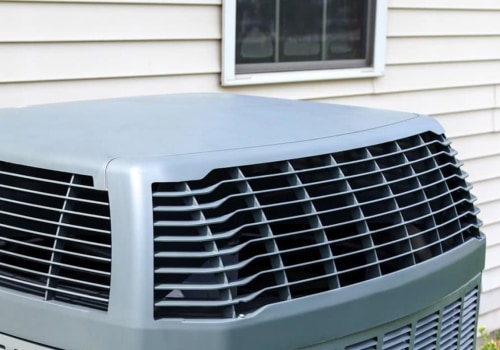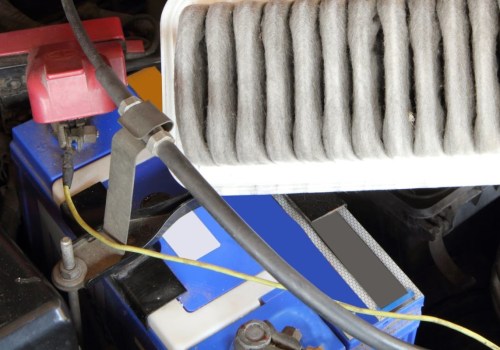An air filter is an essential component of any HVAC system, as it removes impurities such as dust, pet dander, and bacteria from the air that flows through the system. Not only does this improve the air quality inside your home, but it also protects your HVAC system from potential damage. A clear sign that the AC filter needs to be replaced is when the back of the unit is too hot. If the filter is heavily soiled, you may feel warm air coming out the back of the unit.
This is because a clogged filter forces the air conditioner to work harder to keep the house cool, leading to more frequent air conditioning repairs and ultimately shortening the life of the unit. To reduce this load, it's important to change the AC filter regularly. Most central air conditioning units have two or more filters that clean the air and ensure good air quality as the unit circulates between indoor and outdoor air. When air is introduced into the HVAC system, it is first heated or cooled and then pushed through the ducts that lead it to every room in the house. This is because a clogged filter forces the air conditioner to work harder to keep the house cool, leading to more frequent air conditioning repairs and ultimately shortening the life of the unit. To reduce this load, it's important to change the AC filter regularly. Most central air conditioning units have two or more filters that clean the air and ensure good air quality as the unit circulates between indoor and outdoor air. When air is introduced into the HVAC system, it is first heated or cooled and then pushed through the ducts that lead it to every room in the house.
The HVAC filter cleans the air just before it enters through the blower and circulates through the ducts. As air is forced through the filter, its material - usually pleated cloth or paper - traps any contaminants that are in the air. An air cleaner is a device for filtering particles from the air. As with any filter, air conditioning filters consist of a porous structure through which large and coarsely sized harmful particles cannot pass.
In an air conditioner, these filters do not allow hazardous contaminants and allergens to enter the indoor environment. For this reason, they have a marked effect on your health and well-being. The MERV rating of a filter is generally indicated as a number between 1 and 16, although there are some filters with a rating higher than 16. MERV filters 1 to 4 are standard common filters and provide a basic level of filtration at a low cost. If you live in a rural environment with clean air and no pets, a HEPA filter may not be what you need, since a standard filter can do the job.
However, if you have a higher efficiency filter and don't change it often enough, a buildup of moisture can cause mold to build up in the ducts, leading to serious mold infestations. The efficiency level of HVAC filters will vary between different HVAC systems and different types of filters. In addition, these filters can last longer than flat filters because they can hold a larger amount of dust and particles before they need to be changed. The only type of filters that trap allergens and spores are HEPA, or high-energy particulate air filters. Depending on the type of filter you have, six months is the longest you should go without replacing or cleaning it. This will ensure that your HVAC system runs efficiently and effectively while also providing clean air for your home.



